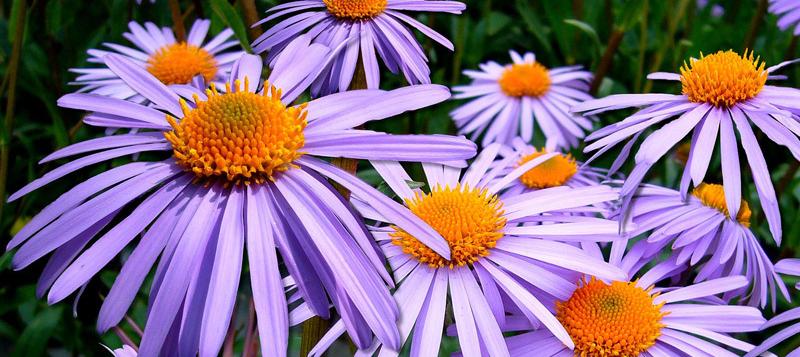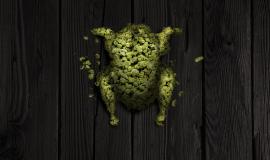Fenchol Terpene in Cannabis: Strains, Effects, and Benefits
Fenchol is a lesser-known yet intriguing terpene in cannabis, offering fresh, herbal aromas and potential benefits that enhance the complexity of certain strains.
Introduction: Understanding Terpenes in Cannabis
Terpenes are the aromatic compounds found in cannabis and many other plants, responsible for their distinct scents and flavors. These compounds not only define a strain’s aroma but may also play a role in how cannabis affects the body. Some terpenes, like Myrcene and Limonene, are well-known for their calming or uplifting effects, while others, such as Fenchol, contribute to a more complex sensory and potential therapeutic experience.
Fenchol is one of the lesser-known but intriguing terpenes in cannabis, recognized for its fresh, herbal, and slightly citrusy scent. Though it is not typically found in high concentrations, it plays a role in the overall profile of certain cannabis strains. Let’s take a closer look at what makes Fenchol unique and how it interacts with cannabis.
What Is Fenchol?
Fenchol is a monoterpene alcohol that occurs naturally in several plants, known for its earthy, pine-like, and slightly citrusy aroma. It is commonly used in fragrances, essential oils, and cleaning products due to its refreshing scent and potential antimicrobial properties. In cannabis, Fenchol enhances the aromatic complexity of a strain and may contribute to its effects.
Where Is Fenchol Found Besides Cannabis?
Beyond cannabis, Fenchol is present in a variety of plants, particularly those known for their fresh, herbal scents. Some natural sources of Fenchol include:
- Basil – One of the most abundant sources of Fenchol, basil contributes to its signature fresh and slightly peppery scent.
- Lemongrass – Known for its citrusy and earthy aroma, lemongrass contains traces of Fenchol, making it a common ingredient in herbal teas and essential oils.
- Lime and Other Citrus Peels – While citrus fruits are rich in Limonene, they also contain smaller amounts of Fenchol, adding to their sharp and refreshing scent.
- Pine Trees – Many coniferous trees produce Fenchol, contributing to the forest-like scent associated with pine needles and resin.
- Aster Flowers – This group of flowering plants, which includes daisies and sunflowers, also contains traces of Fenchol in their essential oils.
Fenchol’s Effects and Potential Benefits
While research on Fenchol’s direct effects in cannabis is still in early stages, its presence in various plants has led to studies suggesting several potential benefits:
- Relaxing and Grounding Effects – Fenchol is believed to have mild calming properties, which may contribute to the relaxing sensations of certain cannabis strains.
- Antioxidant Potential – Some research indicates that Fenchol may have antioxidant properties, helping to protect cells from oxidative stress.
- Antimicrobial Activity – Like many terpenes, Fenchol has demonstrated antimicrobial effects in preliminary studies, which may help plants naturally resist pathogens.
While these findings are promising, more research is needed to fully understand how Fenchol interacts with cannabis and its overall impact on the body.
What Does Fenchol Smell and Taste Like?
Fenchol’s aroma is fresh and earthy, with hints of pine, herbs, and a touch of citrus. It contributes to the crisp, refreshing scent found in certain cannabis strains. When consumed, strains with notable Fenchol content may have a slightly woody, herbal, and citrus-infused flavor, adding complexity to the smoking or vaping experience.
Cannabis Strains High in Fenchol
While Fenchol is not as abundant as Myrcene or Caryophyllene, it can be found in smaller concentrations in various cannabis strains. Some strains that may contain Fenchol include:
- OG Kush. Known for its strong, earthy, and slightly citrusy aroma, this strain features a diverse terpene profile where Fenchol may play a role.
- Lemon Haze. A sativa-leaning strain with citrus-forward notes that may also contain traces of Fenchol.
- Banana Kush. This tropical and slightly herbal hybrid may feature Fenchol alongside other aromatic terpenes.
How Fenchol Interacts with Other Terpenes and Cannabinoids
Fenchol, like all terpenes in cannabis, interacts with other compounds in what is known as the entourage effect — a phenomenon where different terpenes and cannabinoids work together to create unique experiences. For example:
- When combined with Pinene, Fenchol enhances the fresh, forest-like aroma of a strain.
- Paired with Limonene, it creates a more vibrant and citrus-infused scent profile.
- Alongside Caryophyllene, it contributes to a complex mix of herbal, woody, and slightly spicy undertones.
This synergy between terpenes and cannabinoids plays a crucial role in shaping the effects of a cannabis strain, making each variety unique.
Final Thoughts
Fenchol may not be the most dominant terpene in cannabis, but its fresh, herbal qualities add depth to many strains. Found in basil, pine, and citrus, it contributes a unique aroma and may play a role in relaxation and overall well-being. Whether enhancing a strain’s scent or working alongside other terpenes in the entourage effect, Fenchol is a fascinating terpene worth exploring in the world of cannabis.
Health Disclaimer
The information provided in this article is for educational purposes only and should not be taken as medical advice. Always consult with a qualified healthcare provider before using cannabis, particularly if you have pre-existing conditions or are taking medication.






















